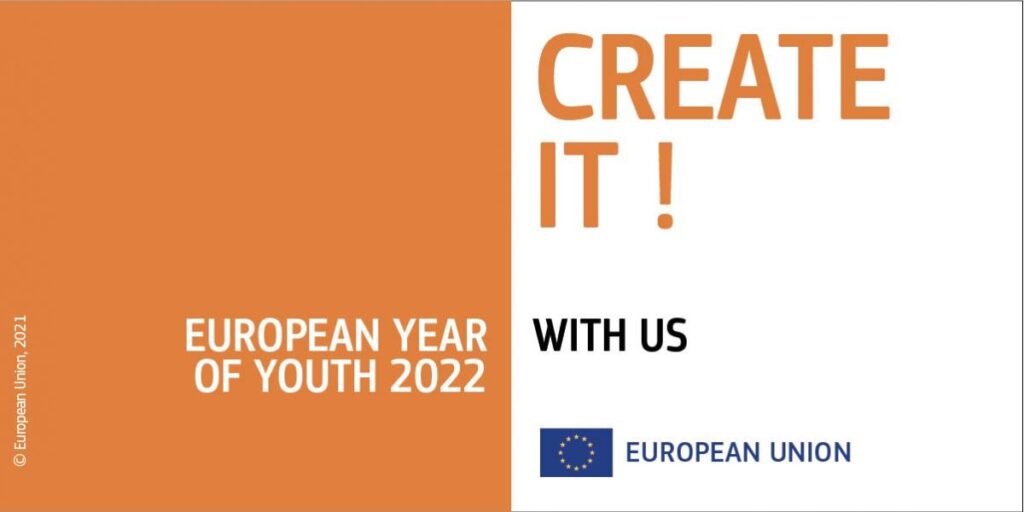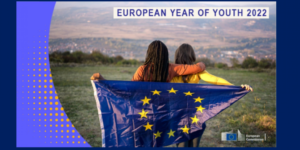
EU President Ursula von der Leyen announced 2022 to be the European Year of Youth during her 2021 State of the Union address. The commission formally adopted the proposal last October.
Why 2022? And how is this commitment to youth at the highest level going to create the momentum needed? The covid pandemic has had a profound impact on all aspects of our personal and collective life as we continue to deal with uncertainty, interruption, the need to re-evaluate, and change. Out of the necessity to tackle their long-lasting impacts, Europe is gaining even more determination and dedication to find new and sustainable ways to build a more conscious future – more inclusive, digital, and greener. With its commitment to dedicate 2022 to youth, Europe reiterated its conviction that the latter can become a reality only with the participation, leadership, and vision of all young people.
This purposeful, joint collective effort, requires everyone to come and cooperate together: the Commission, the European Parliament, Member States, regional and local authorities, stakeholders, and young people. With the activities and initiatives planned throughout the European Year of Youth, the commitment and steps are clear and set in motion to:
The European Year of Youth will search for synergies and complementarity with other EU programs targeting youth across the entire policy spectrum in order to fulfill these intentions.
Participants outlined the necessary future steps, measures, and actions to be taken under the Bonn Process on local, regional, and European levels at the closing of the 3rd European Youth Work Convention in December 2020 and in committing to effectively implement the European Youth Work Agenda.
The Convention’s final Declaration cited Europe Goes Local (EGL) and its European Charter on Local Youth Work, identifying and recommending it as a ‘useful tool to start building this community as a good example of how to successfully strengthen cooperation within the local youth work community of practice
Since its inception in 2016, EGL was intended and established as a strategic partnership that aims to strengthen and further elevate the quality development of youth work across Europe. Engaging stakeholders on all levels across Europe, in a European-wide dialogue and consultation, is the language of EGL and the successful outcome of this multi-level cooperation was the launch of the European Charter on Local Youth Work.

As the European Youth Work Agenda is now calling for the whole youth work community of practice to unite and take coordinated action and as 2022 puts the spotlight on young Europeans, EGL is stepping up and consciously reinforcing its own commitment to the role of a platform for collaboration. A platform, where good examples of activities, initiatives, and programs of the youth work community are collected, highlighted, and shared in an effort to create impact and change.
Under the Bonn Process and in the European Year of Youth, the role of EGL has become even more intentional and purposeful. With common direction and in cooperation, EGL commits to help build a stronger youth work community of practice by creating dialogue, offering tools and opportunities for change and growth and enhancing the quality development of youth work across the different sectors and stakeholders, from local to European levels.
Follow EGL throughout the European Year of Youth to learn more about our good practices and upcoming initiatives in local youth work across Europe.